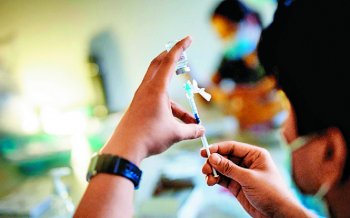News and Events
Rather than avoiding the medical profession due to the fear of the Covid-19 outbreak, there have been an even higher number of students aiming for medicine since the pandemic.
Most students have more incentive to pursue medicine since they have experienced first hand the necessity of good medical support, given that the pandemic has highlighted the importance of healthcare, including having better preparedness for future health crises, and bringing to light the inequalities in healthcare access.
Others might aim for stability in a world undergoing rapid changes or uncertainties, and reading for medicine paves pathways for a more professional-based job.
There are only two university program choices for medical schools in Hong Kong: the University of Hong Kong and the Chinese University of Hong Kong. Both are immensely competitive.
There are extremely high academic expectations for students enrolling in said programmes - for example students are expected to achieve 4A*s in their A-Levels, or for those in the IB curriculum, 43 marks or more. Due to this, a good number will widen their options by applying both to local and overseas universities to ensure a better chance of getting into preferred choices.
Amongst the universities overseas, medical schools in the United Kingdom are some of the most popular, since students have the option of studying medicine for their undergraduate rather than specifying in medicine in their postgraduate.
Studying medicine in the UK also ensures more certainty regarding hospital internships, as universities will generally include a placement year for students.
There are more than 30 medical schools in the UK that enrol students based on their UCAS applications, and what we prioritize every year is research on these medical schools. Since some schools may not disclose all information on their websites, June and July are months when we will contact each medical school one by one, back and forth, to inquire and collect as much information as possible.
We will then gradually piece together the information collected to form a complete jigsaw puzzle of the admissions process and applications accordingly. Often, obtaining a comprehensive blueprint could take us up to 30 to 40 hours.
Students usually apply to UK medical schools through two pathways - either through UCAS, or through the university directly. For the first pathway, students can choose four medical schools out of their five UCAS choices.
Usually, the fifth choice will be medicine-related - examples being biomedical science or biochemistry.
The second pathway is applying directly to the university, but this option is usually only for private medical schools application. This gives students additional options on top of four UCAS medical schools.
In this article, we will focus on dissecting details regarding UCAS applications for UK medical schools.
The first question one might ask is how should students maximize chances.
Students first need to understand how medical schools select students.
Almost all interview candidates before deciding offers, thus securing an interview would be a crucial step to success.
To decide which student to interview, schools usually will look into actual or predicted grades, personal statements, standardized test results (eg BMAT, UCAT) and school references.
Each medical school has their own set of calculation methods, and it should be noted that their algorithm updates every year, therefore students need to do more data collection and careful research.
An example would include Cardiff Medical school, which traditionally first focuses on GCSE scores rather than UCAT results. Thus, if students' GCSE scores are very strong, they should consider applying, whereas those who have not taken the GCSEs are generally not recommended to apply.
Some universities might first do academic screening to make sure students meet the academic standard - and of course personal statements are a basic requirement.
Following this process, universities mainly rely on the UCAT, BMAT results to rank the students, using this to determine if students should be given an interview, since only the top 20 to 30 percent of candidates are interviewed.
Other schools, however, might take a more all-rounded approach. For example they might weigh their considerations accordingly: UCAT 40 percent, GCSE 20 percent, personal statements 20 percent, predicted grades 20percent
Since different schools have different algorithms, thus to maximize interview chances, students should do more research on the medical schools which they have targeted.
https://www.thestandard.com.hk/section-news/fc/14/254536/Dissecting-UK-medical-school-admissions




